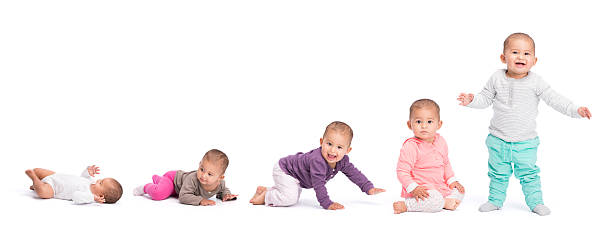Child development Milestones: Why it is important for parents to know
When we talk about child development milestones, we often talk about child development milestones that children reach at certain ages. So what exactly are these milestones? A developmental milestone is an ability that is achieved by most children at a certain age. Stages of development can involve physical, social, emotional, cognitive, and communication skills such as walking, sharing with others, expressing emotions, recognizing familiar sounds, and speaking.
Why are Chil development milestones important?
For example, between the ages of 9 to 12 months, children begin to achieve physical milestones such as getting up or even walking. While the exact age at which a child reaches a particular stage can vary, parents may be concerned if their child has not learned a skill that most of their peers of the same age can accomplish. If a child has not learned to walk for 18 months, for example, parents should see their child’s doctor.
You can think of the stages of development as a checklist. They represent an average child can do around a particular age, although there are a considerable number of individual differences. For example, some children may start walking as early as 9 or 10 months old, while others don’t start walking until they are 14 or 15 months old. By looking at the different developmental milestones, parents, doctors and teachers are able to better understand how children develop and generally keep and watch for any potential developmental issues.
Types
There are four basic categories for child development milestones:
1. The physical stages involve both motor skills and fine motor skills. Motor skills are usually the first to develop and include sitting, standing, crawling, and walking. Fine motor skills involve precise movements such as grabbing a spoon, holding a pencil, drawing shapes, and picking up small objects.
2. Cognitive stages focus on a child’s ability to think, learn and solve problems. An infant learning to respond to facial expressions and a preschooler learning the alphabet are two examples of cognitive stages.
3. Social and emotional milestones focus on children gaining a better understanding of their own emotions and the emotions of others. These steps also include learning to interact and play with other people.
4. Communication milestones involve both linguistic and non-verbal communication. A one-year-old learning to say his first words and a five-year-old learning some of the basic rules of grammar are examples of important communication steps.
All children develop at different rates
While most of these child development milestones typically take place over a period of time, there is an important caveat. Parents and caregivers should remember that every child is unique. Not all children will hit these stages at the same time. Some children may reach certain milestones very early, such as learning to walk or speak much earlier than their peers of the same age. Other children may reach these developmental milestones much later. This does not necessarily mean that one child is gifted or another is retarded.
It simply represents the individual differences that exist in the development process.
These development capacities also tend to build on each other. More advanced skills such as walking usually occur after simpler abilities such as crawling and sitting have already been achieved.
Just because a child started walking before the age of eleven months does not mean that the child is “behind” if they still do not walk by the age of 12 months. A child generally begins to walk anytime between the ages of 9 and 15 months, so any time between these ages is considered normal.
If a child is over 15 months of age and still cannot walk, parents might consider seeing a doctor or child developmental specialist to determine if a certain type of child developmental problem is present.
By understanding these child developmental milestones, caregivers and healthcare professionals can keep a watchful eye on children’s growth. When potential problems are detected, previous interventions may contribute to more positive results.
#parentingtips #parentinggoals #parentingteens #parentingadvice #parentingsupport #parentinglife #parenting101 #childdevelopment #childprotection # #childdevelopmentmilestones
